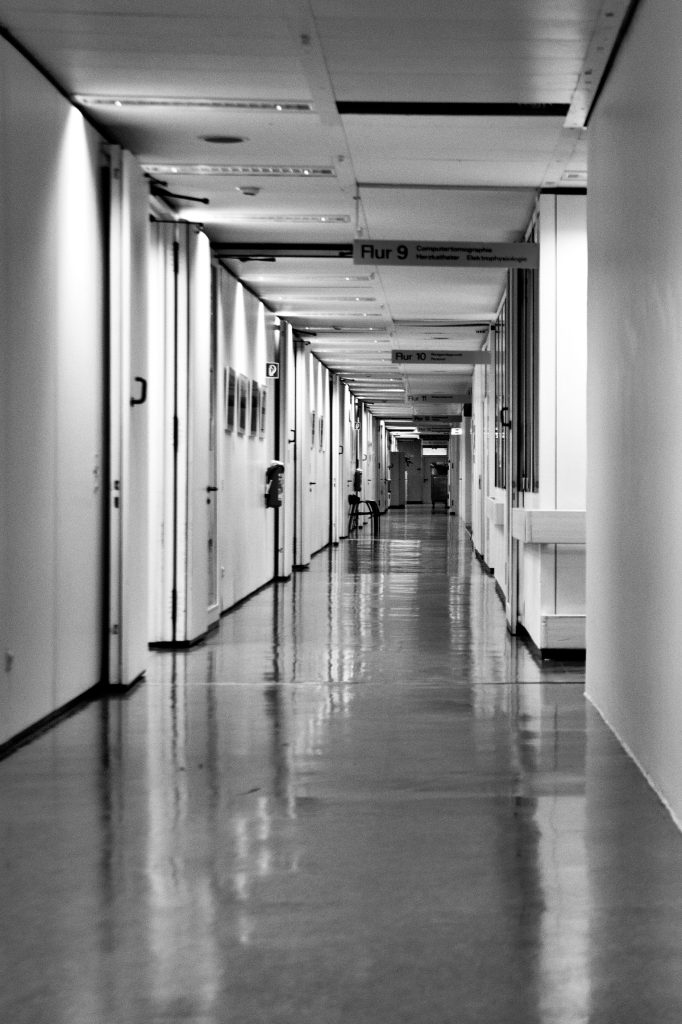 Personal injuries occur every day in society and should be taken seriously. Yet, courts must judge the importance of each accident. As a result, not all injuries are ruled in favor of the injured individual. A lawyer representing an injured person must investigate the circumstances and facts surrounding the injury with due diligence. The lawyer must show the court that his client’s case should be heard because the evidence says so. However, when video evidence of a slip and fall injury in a hospital is not obtained, should a court allow the lawyer to continue investigating his client’s accident? A case out of Baton Rouge explores this question and reminds lawyers of their responsibility to act diligently in attaining evidence for their clients.
Personal injuries occur every day in society and should be taken seriously. Yet, courts must judge the importance of each accident. As a result, not all injuries are ruled in favor of the injured individual. A lawyer representing an injured person must investigate the circumstances and facts surrounding the injury with due diligence. The lawyer must show the court that his client’s case should be heard because the evidence says so. However, when video evidence of a slip and fall injury in a hospital is not obtained, should a court allow the lawyer to continue investigating his client’s accident? A case out of Baton Rouge explores this question and reminds lawyers of their responsibility to act diligently in attaining evidence for their clients.
Bobbie Davis Cole was visiting her sister, a Baton Rouge General Medical Center (BGR) patient. When Ms. Cole entered the hospital, she slipped and fell on a slippery substance on the floor and was then helped by the security guard. Ms. Cole filed a lawsuit against BGR, claiming the security guard told her that others had fallen in the same area she had.
BGR moved for summary judgment. A summary judgment would allow for the dismissal of the case. In filing this motion, BGR argued that Ms. Cole could not prove a foreign substance on the hospital floor injured her. Ms. Cole took the testimony of the security guard, who asserted he looked at the video camera footage and did not see anything on the floor. At the hearing for summary judgment, Ms. Cole filed a motion of continuance, which would allow her to continue the discovery process, contending that she was not ready to go forth with the hearing without having the surveillance video of her fall. The trial court denied her continuance motion and granted the hospital’s summary judgment dismissing Ms. Cole’s case. An appeal of the ruling followed.
In Louisiana, the trial court can grant a continuance and can only be given “if there is good ground therefor.” La. C.C.P. art. 1601. The party applying for the motion of continuance must demonstrate that he acted “with the exercise of due diligence” but was unable to obtain evidence for his case or that a certain witness has remained absent without the party who is applying for the motion of continuance, trying to reach the witness. La. C.C.P. art. 1602. Additionally, the trial court will assess each case’s circumstances and facts when determining whether to grant or reject a motion of continuance. See Gilmore v. Wickes Lumber, 928 So.2d 668 (La. Ct. App. 2006).
Here, Louisiana’s First Circuit Court of Appeal agreed with the trial court’s ruling that Ms. Cole’s lawyer did not act with the required due diligence to obtain the video footage of her accident. When the security guard was deposed, Ms. Cole’s attorney only asked the security whether he generally looked at the camera footage of the hospital floor. Also, her attorney did not ask the security guard any questions about whether he viewed the actual video footage of Ms. Cole’s slip or whether he merely viewed the photographs that were given to her attorney. In addition, Ms. Cole’s lawyer did not question the guard on whether BGR usually keeps and maintains security footage at their hospital or is held elsewhere.
After the deposition, Ms. Cole’s attorney sent a letter to the hospital requesting video footage of the incident. The letter was delivered five months after he received the hospital’s discovery responses. The lawyer did not show due diligence in getting the video footage, so the appellate court affirmed the trial court’s decision to deny Ms. Cole’s motion for continuance.
Ms. Cole’s situation highlights the importance of good, effective lawyering. Ms. Cole possibly could have had a legitimate case against Baton Rouge General. Yet, her lawyer’s untimeliness in pressuring the hospital about the surveillance footage led to her case’s dismissal. Therefore, it is paramount that attorneys make sound plans in each case and understand the consequences of not acting diligently. Ultimately, future victims of personal injuries should be mindful and research an attorney or law firm because we all would desire a zealous advocate who will go the extra mile to care for us.
Additional Source: Cole v. Baton Rouge General Medical Center
Written by Berniard Law Firm Blog Writer: Rudra B. Shukla
Other Berniard Law Firm Articles on Louisiana Slip and Fall Cases: Lake Charles Lawsuit Explains How A Hospital Could Be Liable for a Slip and Fall
 Louisiana Personal Injury Lawyer Blog
Louisiana Personal Injury Lawyer Blog

